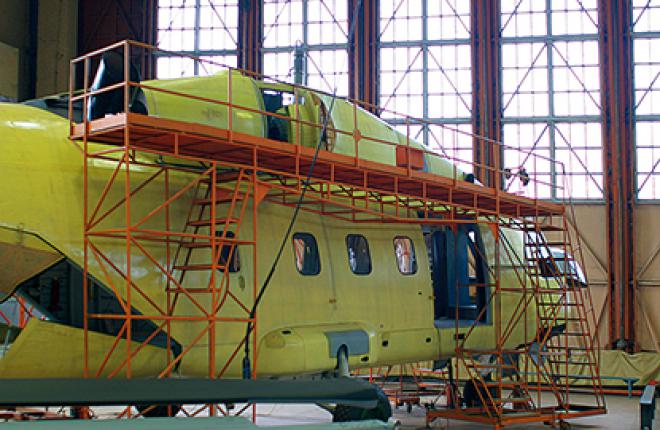Mi-38 sets new records

The new Mil Mi-38 transport helicopter has demonstrated the best performance for its MTOW class (10,000 to 20,000 kg) in the course of the on-going flight test program. According to the Russian Helicopters, prototype OP-2, powered by a pair of Pratt& Whitney Canada PW127/5 engines, climbed to 8,620 m without a payload. Other records registered during the 14th FAI world helicopter championship in August 2012 included climbing to 3 km in 6 minutes, and to 6 km in 10 minutes and 52 seconds. In September last year, OP-2 climbed to 7,895 m with 1-ton payload and to 7,020 m with 2-t payload during the certification tests at Mil Moscow Helicopter Plant. All these results have been entered into the official FAI register of world records.
The Mi-38 has been under development since the 1980s. The first Pratt&Whitney-powered prototype took off in 2003. The second prototypeʼs maiden flight did not take place until 2010. Apart from the Canadian powerplants the Mi-38 may be fitted with Russian-made TV7-117V engines, which will be installed on the third flying prototype. The Mi-38 can carry more than 5 tons of freight internally or over 7 tons externally. The manufacturer aims it at the search-and-rescue, offshore, air ambulance and VIP markets. Series production should begin in Kazan in 2015.
Ссылки по теме
- Для того, чтобы оставить комментарий, не привязанный к социальной сети, войдите или зарегистрируйтесь на нашем сайте.









